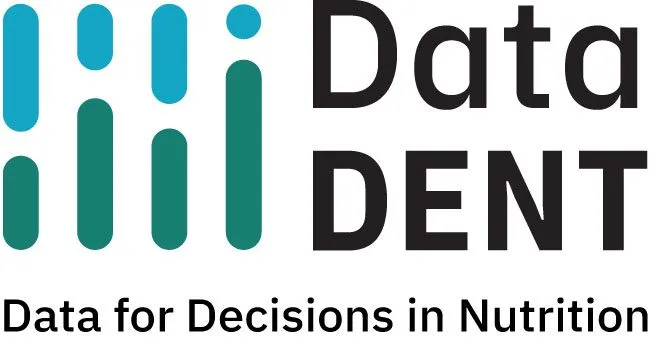Gender is a social determinant of health which can have a significant impact on an individual’s nutrition status. The 2020 Global Nutrition Report (GNR) Nutrition Equity Framework illustrates how basic and underlying determinants, including gender, are interlinked and...
Revisiting core indicators: Principles from the updated WHO-UNICEF Infant and Young Child Feeding (IYCF) indicator guidance
In April 2021, WHO and UNICEF released updated definitions and measurement guidance for indicators to assess infant and young child feeding (IYCF) practices. Originally released in 2008, indicators of diet quality for children 0-23 months of age have been an...
Creating effective accountability DVTs: Four lessons from the Nigeria Governors’ Forum Nutrition Scorecard
The Nigerian Governors’ Forum (NGF) is a non-partisan policy-hub dedicated to promoting good governance and development at the sub-national level. The forum has a strong track record of using data to inform decision-making and improve advocacy among Nigeria’s...
Advancing the data and accountability agenda for maternal and child undernutrition
On International Women’s Day, 8 March 2021, a Lancet series on Maternal and Child Undernutrition (MCUN) Progress was launched as part of the Nutrition Year of Action—a year-long effort to drive momentum on tackling malnutrition ahead of the 2021 Nutrition for Growth...
Nutrition-Sensitive Social Protection Programs: What, why and how can we measure them?
What is nutrition-sensitive social protection? Nutrition-sensitive sectors address the underlying determinants of maternal and child malnutrition (e.g. food security, education), and investments in these sectors are critical to global strategies for eliminating...
Standing Together for Better Nutrition Data during COVID-19 and beyond
Since mid-2020, DataDENT team members have been actively involved in Standing Together for Nutrition (STfN)—a multidisciplinary consortium of economics, nutrition, and health systems experts committed to addressing COVID-related nutrition challenges. To date the...
What data do nutrition stakeholders use and how can we better meet their needs?
The global nutrition community is remarkably diverse: its stakeholders include people working in vastly different fields, from health to agriculture, to water and sanitation and in roles ranging from program management to policy development to issue-based advocacy....
Tracking India’s progress on addressing malnutrition and enhancing the use of data to improve programs
In collaboration with Partnerships and Opportunities to Strengthen and Harmonize Actions for Nutrition in India (POSHAN), NITI Aayog, and ID Insight, DataDENT developed a joint report addressing considerations for improving the availability and use of data to improve...
Mind the (data) gap: Understanding the gender dimensions of food security
Gender is a social determinant of health which can have a significant impact on an individual’s nutrition status. The 2020 Global Nutrition Report (GNR) Nutrition Equity Framework illustrates how basic and underlying determinants, including gender, are interlinked and...
Revisiting core indicators: Principles from the updated WHO-UNICEF Infant and Young Child Feeding (IYCF) indicator guidance
In April 2021, WHO and UNICEF released updated definitions and measurement guidance for indicators to assess infant and young child feeding (IYCF) practices. Originally released in 2008, indicators of diet quality for children 0-23 months of age have been an...
Creating effective accountability DVTs: Four lessons from the Nigeria Governors’ Forum Nutrition Scorecard
The Nigerian Governors’ Forum (NGF) is a non-partisan policy-hub dedicated to promoting good governance and development at the sub-national level. The forum has a strong track record of using data to inform decision-making and improve advocacy among Nigeria’s...
Advancing the data and accountability agenda for maternal and child undernutrition
On International Women’s Day, 8 March 2021, a Lancet series on Maternal and Child Undernutrition (MCUN) Progress was launched as part of the Nutrition Year of Action—a year-long effort to drive momentum on tackling malnutrition ahead of the 2021 Nutrition for Growth...
Nutrition-Sensitive Social Protection Programs: What, why and how can we measure them?
What is nutrition-sensitive social protection? Nutrition-sensitive sectors address the underlying determinants of maternal and child malnutrition (e.g. food security, education), and investments in these sectors are critical to global strategies for eliminating...
Standing Together for Better Nutrition Data during COVID-19 and beyond
Since mid-2020, DataDENT team members have been actively involved in Standing Together for Nutrition (STfN)—a multidisciplinary consortium of economics, nutrition, and health systems experts committed to addressing COVID-related nutrition challenges. To date the...
What data do nutrition stakeholders use and how can we better meet their needs?
The global nutrition community is remarkably diverse: its stakeholders include people working in vastly different fields, from health to agriculture, to water and sanitation and in roles ranging from program management to policy development to issue-based advocacy....
Tracking India’s progress on addressing malnutrition and enhancing the use of data to improve programs
In collaboration with Partnerships and Opportunities to Strengthen and Harmonize Actions for Nutrition in India (POSHAN), NITI Aayog, and ID Insight, DataDENT developed a joint report addressing considerations for improving the availability and use of data to improve...
